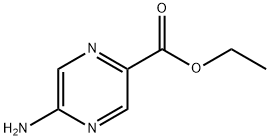Hi, I'd like to ask—what are the practical uses of citric acid powder in daily life? In cooking or baking, can it be used as a preservative or to adjust the taste of food? Is it effective for cleaning household items like kettles, faucets, or tiles, and how does it work? Are there any uses in areas like skincare or pet care that I might not know about? Thanks!
What are the practical uses of citric acid powder in cooking, cleaning, and other daily scenarios?
Related Encyclopedia
- 1348091-16-6
- C7H10O7
- 206.15000
- All (893)
- China (66)
- (893)

- 77-92-9
- C6H8O7
- 192.12
- All (893)
- China (66)
- (893)

- 78891-91-5
- C30H32ClN2NaO12
- 671.02400
- All (0)
- China (0)
- (0)

- 1401-20-3
- C43H44O24
- 944.79506
- All (0)
- China (0)
- (0)

- 7782-40-3
- C
- 12.0107
- All (0)
- China (0)
- (0)
- 724424-92-4
- 0
- All (12)
- China (9)
- (12)

- 24555-16-6
- C6H6O6
- 174.10800
- All (0)
- China (0)
- (0)
- 334886-99-6
- C10H12O8
- 260.19700
- All (0)
- China (0)
- (0)
- 85698-65-3
- C6H5Cl3O4
- 247.46000
- All (0)
- China (0)
- (0)
- 1177936-31-0
- C6H10O8
- 210.13900
- All (185)
- China (5)
- (185)
Related Products More >
-
- 1333-86-6
- CNY Request For Quotation
-
- 1333-86-5
- CNY Request For Quotation
-
- 1333-86-4
- CNY Request For Quotation
-
- CNY Request For Quotation
-
- CNY Request For Quotation
-
- CNY Request For Quotation
-
- CNY Request For Quotation
-
- CNY Request For Quotation




For household cleaning, citric acid is highly effective on items such as kettles, faucets, and tiles. It works by breaking down mineral deposits like limescale and rust, which form from the calcium and magnesium in hard water. To clean a kettle, boiling a solution of water and citric acid powder softens the buildup, making it easy to rinse away. For faucets or tiles, a paste made by mixing the powder with water can dissolve stubborn grime and leave surfaces looking clean and shiny, all without the need for harsh chemicals.
In skincare, citric acid, as an alpha-hydroxy acid, helps exfoliate dead skin cells, making it a useful ingredient in DIY face masks or toners that brighten and smooth the skin. It can also help balance the skin’s pH when added to homemade cleansers. For pet care, diluted citric acid solutions can clean pet bowls, removing leftover food residue and odors, or act as a mild disinfectant for pet bedding.
For household cleaning tasks, citric acid demonstrates impressive effectiveness against mineral deposits. Hard water stains on glassware and faucets dissolve quickly when treated with a citric acid solution, as the compound breaks down calcium carbonate buildup through a simple chemical reaction. Kettles with limescale accumulation benefit from boiling a citric acid solution, which restores heating efficiency without abrasive scrubbing. Tile grout and bathroom surfaces regain their original appearance when cleaned with a paste made from citric acid and water, offering an eco-friendly alternative to chlorine-based cleaners. The powder's ability to chelate metal ions also makes it useful for descaling coffee makers and removing rust stains from porcelain sinks.
In skincare routines, citric acid functions as an alpha hydroxy acid (AHA) that gently exfoliates dead skin cells while promoting cell turnover. This property makes it a common ingredient in facial peels and anti-aging creams, where it helps reduce the appearance of fine lines and sun damage. Some deodorants incorporate citric acid for its antibacterial qualities, which help control underarm odor by limiting bacterial growth. Hair care products sometimes include small amounts to counteract the dulling effects of hard water minerals, leaving hair shinier and more manageable.
Pet owners may find citric acid helpful in maintaining feline urinary health. Adding a small amount to a cat's drinking water can help acidify urine, potentially preventing struvite crystal formation. However, this application requires careful dosage control, as excessive acidity could harm the animal's urinary tract. Some dog shampoos include citric acid to maintain coat shine and balance skin pH, though veterinary consultation is advisable before regular use.
Gardeners utilize citric acid to modify soil chemistry for acid-loving plants like azaleas and blueberries. Mixing the powder with water creates an organic acidifier that gradually lowers soil pH, improving nutrient availability for these species. This natural approach avoids the environmental concerns associated with synthetic soil amendments.
The powder's antibacterial properties extend to laundry applications, where adding citric acid to rinse cycles helps sanitize clothes while softening water. This dual action reduces detergent buildup and enhances fabric freshness without relying on chemical fabric softeners.
The cleaning applications of citric acid provide practical demonstrations of acid-base chemistry. When dissolved in water, the resulting solution reacts with calcium carbonate deposits through a simple acid-carbonate reaction, producing soluble calcium citrate and liberating carbon dioxide gas. This mechanism makes it particularly effective for descaling kettles and removing limescale from bathroom fixtures. From an environmental chemistry perspective, citric acid's biodegradability and low toxicity present clear advantages over harsher cleaning agents, though students should be made aware of proper handling procedures to avoid skin irritation.
In personal care products, citric acid's inclusion often relates to its buffer capacity. Skincare formulations frequently utilize its ability to maintain pH levels around the skin's natural acidic mantle (approximately pH 5.5). The pet care applications demonstrate how chemical principles translate to biological systems, with careful pH adjustment helping prevent urinary crystal formation in felines. These examples provide valuable teaching moments about the interdisciplinary nature of chemistry, showing how fundamental concepts apply to everyday situations while maintaining appropriate safety considerations. The compound's GRAS (Generally Recognized As Safe) status further illustrates important regulatory concepts in product formulation.
For cleaning, it tackles limescale in kettles by dissolving the calcium and magnesium deposits that build up. On faucets and tiles, its acidity breaks down soap scum, which is often alkaline, turning it into a substance that wipes away easily.
In skincare, a weak solution can gently remove dead skin, thanks to its ability to loosen bonds between cells. For pets, some owners mix tiny amounts into water to help maintain a healthy urinary pH, though it’s smart to ask a vet first. It’s impressive how one substance can do so much, all tied to its acidic properties.